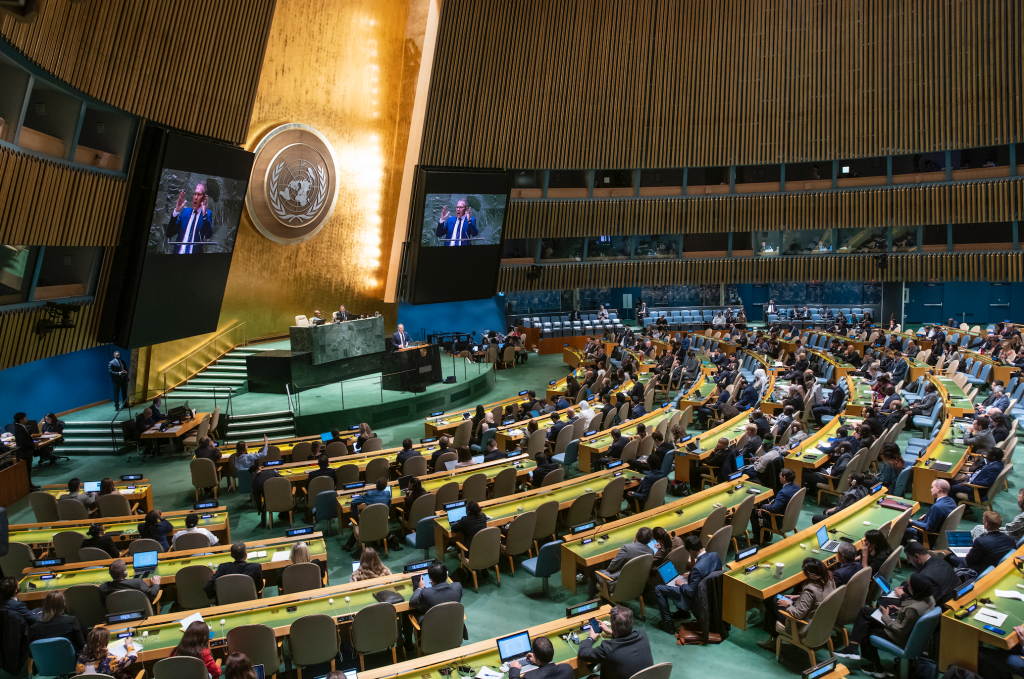Australia voted with 158 other countries in favor of permanent Palestinian sovereignty in territories such as East Jerusalem.
This is the first time Australia has voted to support Palestinian sovereignty since the resolution was introduced around twenty years ago.
The resolution recognizes the “permanent sovereignty of the Palestinian people in the Occupied Palestinian Territory, including East Jerusalem, and of the Arab population in the occupied Syrian Golan over their natural resources.”
A spokesman for Australia’s Foreign Minister, Penny Wong, said that the vote reflected concern about “ongoing settlement activity, land dispossession, demolitions and settler violence against Palestinians”.
“We have been clear that such acts undermine stability and prospects for a two-state solution,” the spokesperson said.
“This resolution recalls UN security council resolutions that reaffirm the importance of a two-state solution that has had bipartisan support.”
In another draft resolution, Australia demanded that Israel compensate Lebanon for its role in a 2006 oil spill.
In May, Australia’s Parliament rejected by a margin of 80-5 a Greens Party proposal to recognize a “state of Palestine.”
, opponents of the proposal argued that a Palestinian state that isn’t committed to renouncing terror will promote peace in the region.
Assistant Foreign Affairs Minister Tim Watts said, “simplistic wedge motions in the house do nothing to advance the cause of peace.”
He continued, “A Palestinian state cannot be a threat to Israel’s security. We want to see a reformed Palestinian governing authority committed to peace, renouncing violence.”
Opponents cited Denmark whose government also voted against unilateral recognition of a Palestinian State.
“We cannot recognize an independent Palestinian state for the sole reason that the preconditions are not really there,” Danish Foreign Minister Lars Lokke Rasmussen said in April.









